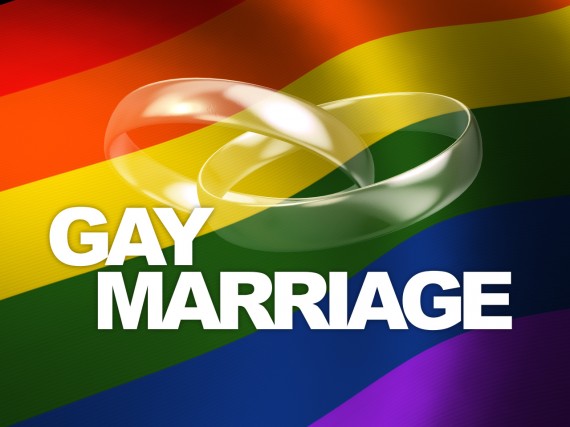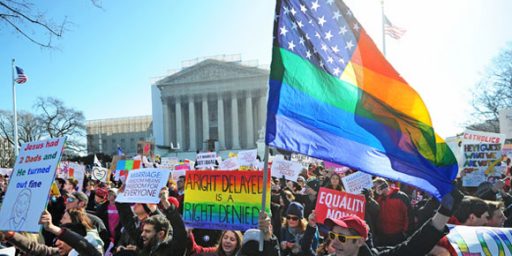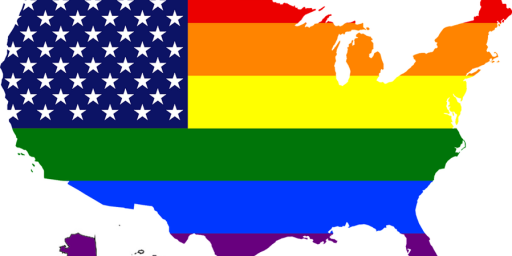Supreme Court To Consider Whether To Accept 6th Circuit Marriage Appeals On January 9th
Shortly after the new year, we could know whether or not the Supreme Court will issue a definitive ruling on same-sex marriage by the end of June.
The Supreme Court has scheduled the four same-sex marriage cases from the Sixth Circuit, in which that circuit became the only appellate level court to date to uphold a ban on same-sex marriage, for its first conference of the year on January 9th:
WASHINGTON — The Supreme Court is set to consider on Jan. 9 whether it will hear appeals of same-sex couples’ marriage challenges in cases out of five states, one of the legal teams representing the couples told BuzzFeed News on Monday.
“The Tanco [Tennessee case] petition will be considered at the Court’s January 9 conference, along with … petitions filed by the plaintiffs in Michigan, Ohio, Kentucky, and Louisiana,” National Center for Lesbian Rights spokesperson Erik Olvera told BuzzFeed News on Monday afternoon.
The plaintiffs and marriage equality advocates alike hope the petitions will provide the Supreme Court with the chance to take a case to resolve the issue nationally with a ruling that would apply across the country.
Although the justices denied petitions filed earlier in the year from other states, all were in cases in which the lower court had struck down the bans — and before there was a “circuit split,” a disagreement among the federal appeals court on the issue. All five petitions before the court now come from decisions upholding the various states’ bans.
In November, the 6th Circuit Court of Appeals, in a 2-1 decision, reversed the four district courts to have heard the cases out of Kentucky, Michigan, Ohio, and Tennessee — sending the plaintiffs in the cases from all four states to the Supreme Court seeking an appeal.
NCLR is among the lawyers representing the same-sex couple plaintiffs challenging Tennessee’s ban on recognition on same-sex couples’ marriages, and Olvera said the news about the Jan. 9 conference came from the Supreme Court clerk’s office.
The justices need to decide in the next month whether they will hear a case addressing same-sex couples’ marriage rights this term — meaning the case would be heard this spring and a decision would be expected by late June.
If the justices don’t accept one of the cases for review by mid-January — even if they accept a case later this winter or spring — then it is expected the case would not be heard until the Supreme Court’s next term, which begins in October 2015. If they deny the petitions out of the 6th Circuit, on the other hand, the lower court ruling would stand and the bans would remain in effect.
Depending on what the Court decides, it’s possible that we may know as early as the afternoon of January 9th what the Court has decided to do with these four cases since that is generally the time when the court’s press office releases the first of what are typically two Order’s Lists that are issued based on what happened at the conference, where the Justices will be discussing a number of pending cases, petitions, and motions in addition to the same-sex marriage cases. The next day we might expect to hear something after the January 9th Conference would be Monday January 12th, when the Court hands down the rest of its orders list resulting from action taken at the Friday conference. At that point, we may learn that the one or more of the cases have been accepted for appeal and scheduled for oral argument, that the Court has declined the petition for appeal in which case the decision in the Sixth Circuit would stand and same-sex marriage would remain banned in Michigan, Ohio, Kentucky, and Tennessee, but this would have no impact at all on the state of the law in those parts of the country where Circuit Courts of Appeal have struck down state laws banning same-sex marriage, nor would it necessarily impact the law in those parts of the country where the law remains unresolved. The final possibility is that the Court could decline to take any action on the petitions on January 9th. This has happened frequently in the past with the Roberts Court, where the practice of “relisting,” in which the Court considers whether to take an appeal at more than one conference, has become more common than it used to be in the past. In this case, the next conference would be on January 16th, and then there’s another one on January 23rd. As noted above, though, if the Court does delay a decision on whether to accept the appeal much past mid-January the odds become quite high that it would not schedule the case for oral argument until some time early in the October 2015 Term.
The anticipation, of course, is that the Court will end up accepting the appeals from the Sixth Circuit because of the circuit split that now exists. and its recent action in refusing to impose a stay on same-sex marriages in Florida seems to reinforce the supposition that they will eventually accept the Sixth Circuit cases. Justice Ruth Bader Ginsburg seemed to hint at this even before the Court had handed down its initial decision in October to decline to review the cases from the three Circuits that had struck down such laws. At that time, there was no Circuit split on the issue of the Constitutionality of laws against same-sex marriage. Now that there is, and assuming that Ginsburg was foreshadowing the Court’s view of the procedure, then the most likely outcome is that the Supreme Court will take these cases for appeal. The only question is whether they will act on the petitions quickly enough to schedule briefing and oral argument for this term, or punt the case to October.






If the SCOTUS accepts the appeal, do they have to go the formal hearing and decision route, or could they just summarily reverse?
Do you know if any of these cases address the case where petitioners got married in state where same-sex marriage was legal and now want states in 6th Circuit to recognize their marriage?
Because if SCOTUS upholds the bans on same sex marriage, how do you address the equal protection/full faith and credit? All those states will recognize my heterosexual marriage from Virginia as being valid but if homosexual couple gets married in Virginia and moves to Tennessee it suddenly becomes invalid?
@Mu: There would be no reason for the Supreme Court to summarily reverse the 6th Circuit’s decision.
@Rabbit:
The full faith & credit clause has an out – specifically
In other words, solely evaluated under the standard of the FF&C clause, section 2 of DOMA, and states refusal to recognize SSMs performed in other states, is constitutional. Congress has the power to effect limitations on which official acts & proceedings must be recognized by other states under FF&C.
That having been said, there is an implied grant of equal protection within the 5th Amendment established by SCOTUS precedent, and that is where section 2 runs into problems. Congress can no more establish law that sets aside a subset of the population for disparate treatment based on animus than the states can. The court’s reasoning in Windsor sets the stage for the nullification of section 2 of DOMA, and by association the ability of states which still have active bans in place to deny recognition, as well.
The eventual outcome of this scenario will almost certainly be a ruling that states may not debar SSM and an overturn of Section 2 of DOMA as well, although I have my doubts that the court will reach the second part of that outcome in these cases. It’s possible, of course, but it will depend on which justice writes the opinion.
My gut tells me that we’re going to see a positive, sweeping ruling written by Kennedy, but we’ll have to stay tuned to see what eventually gets handed down.
@HarvardLaw92: I’m an occasional visitor to this site and always appreciate your opinions on this issue–they are very well reasoned. I do though think reason has very little to do with the next outcome. We’re at a tipping point.
I think the question is not whether there is precedent, legal reasoning and an imperative (based on your very valid point of disparate treatment). I think the big question is Kennedy emotionally and intellectually ready to pull the trigger? He is conservative by nature and conservatives are loathe to be the Brown v. Board of Ed/Roe v Wade guy. It is a testament to his intellectual integrity he has gone so far. And as a liberal gay man I respect it enormously and am grateful to him for that integrity.
One can always find a dozen precedents to support a marriage equality position. One can also find a half dozen reasons/precedents not to do so. A congressman once asked Tip O’Neill to give him 3 reasons to vote for a bill. O’Neill did so and the congressman voted accordingly. O’Neill then voted against it and the congressman asked for an explanation. O’Neill replied: “you didn’t ask for the 3 reasons to vote against it.”
I think that best sums up where we are on the issue. It’s how Justice Kennedy feels about the pros v. cons. Sweeping will certainly happen, as you say. I’m not sure soon is quite as certain.
Regards, Laurence